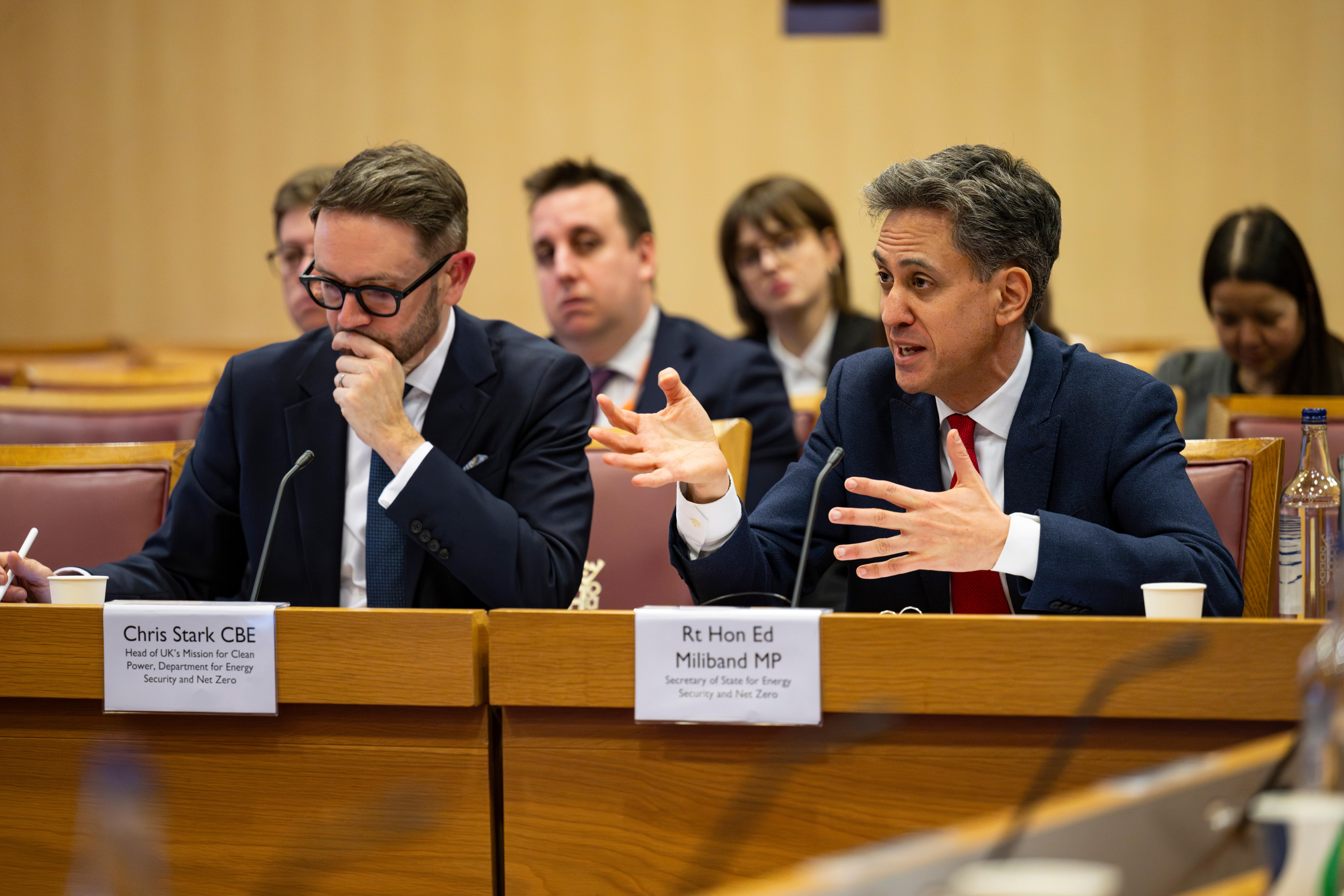Wind farms and energy infrastructure will not dominate countryside, peers told
Ed Miliband and Chris Stark addressed concerns that new energy infrastructure projects could effect food security and nature restoration.

Wind farms and energy infrastructure will not dominate the UK’s countryside because of the Government’s clean power ambitions, peers have heard.
Speaking to the Lords’ environment and science committees on Tuesday, Energy Secretary Ed Miliband defended planning reforms to push through a wave of clean energy projects, as part of Government ambitions for a decarbonised electricity grid by 2030.
It comes amid concerns that Labour’s net zero goals and the dialling back of environmental protections to drive development could come at the expense of nature recovery and food security, as more land is absorbed by wind farms and clean energy infrastructure.
But Mr Miliband said new projects will take up little agricultural land and plans will see them “dovetailing” with nature restoration.
I believe clean energy development is absolutely compatible with nature protection and restoration
He cited the long-awaited land use framework, which is expected to be published by the Environment Department (Defra) this year, and will outline how the country can support multiple objectives, including farming, nature and climate mitigation.
“I believe clean energy development is absolutely compatible with nature protection and restoration,” he said.
“I do not buy the zero-sum game argument.
“Solar farms can be compatible with rewilding, wildflower meadows, even sheep grazing and other things. The notion that it’s either one thing or another is not something I buy.”
Mr Miliband added that even the “most wildly ambitious” solar panel numbers would take up less than 1% of agricultural land.
“We must and we can do clean energy development, nature protection and restoration together, and indeed the role of nature restoration is a crucial part of meeting our carbon budget,” he said.
Chris Stark, head of the Energy Department’s (DESNZ) mission for clean power, also spoke about how the Government will ensure projects needed for 2030 are not built in locations to the detriment of other challenges.
“The idea of nature restoration alongside the cleaning up of the power system is absolutely essential to what we’re trying to do,” he said.
Mr Stark added that the land use requirements for the needed energy infrastructure are “tiny”.
“Most of the energy generation we’ll have from this point onwards to 2050 will come from the seas around the UK rather than onshore,” he said.
“And we still have this question of how we use this precious land we have in Britain and across the UK in the best way possible, but it is not going to be dominated by energy infrastructure at all.”
The Energy Secretary was also challenged that the previous de facto ban on onshore wind turbines was introduced by former prime minister David Cameron because of their unpopularity among the public.
“They weren’t unpopular,” he said, before citing DESNZ polling, which recently suggested 74% public support for onshore wind.
“I think it was unpopular with a small minority,” he said, adding that most believe it is the right move for climate and other issues like energy security and bills.
Bookmark popover
Removed from bookmarks